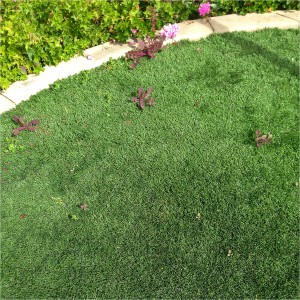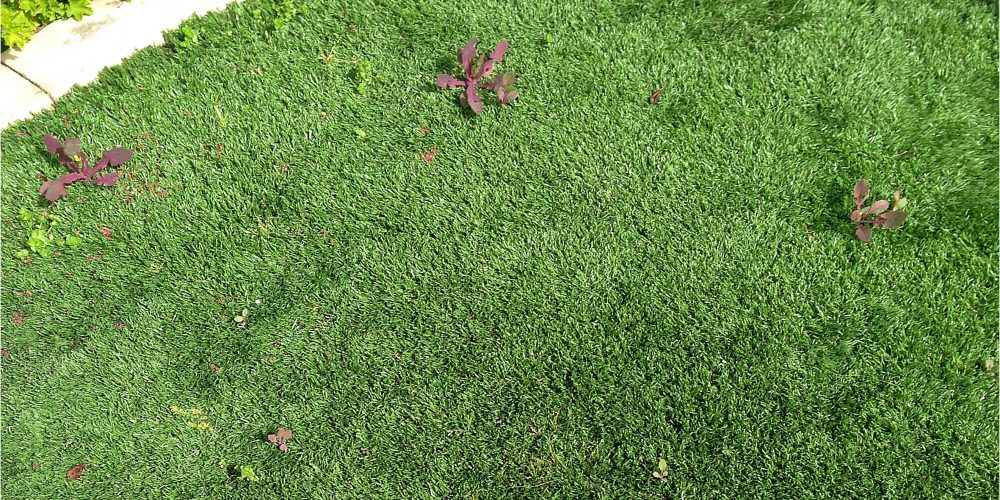 Synthetic turf, or artificial grass, is what used to be called AstroTurf. Many ask us if this is a viable option for saving water in the landscape, and our answer is a resounding ‘NO’.
Synthetic turf, or artificial grass, is what used to be called AstroTurf. Many ask us if this is a viable option for saving water in the landscape, and our answer is a resounding ‘NO’.
We do not recommended artificial turf as a water conservation tool for several reasons:
- Artificial turf is installed over a highly compacted base of gravel and/or decomposed granite or concrete, so it’s permeability is at least as poor as regular compacted turf. We need our landscapes to hold on to water, so that our soil can filter and clean the pollutants, recharge our aquifers and lock up carbon from the atmosphere to help combat increasing levels of CO2.
- The in-fill material of artificial turf is often rubber crumb made from recycled car tires. This off-gases and has been linked to increasing rates of cancer and other diseases for those who play on it regularly.
- Artificial turf gets hot, contributing to the heat-island effect around the property. This could adversely affect surrounding plant material, increase the temperature and increase the amount of air conditioning used inside the building. Increased energy use is expensive to your wallet and the environment. In some cases, homeowners opt to hosing it down to get it to cool off enough for pets and children to play on it.
- Often heralded as a no water, no maintenance solution for landscapes, artificial grass will happily support weeds if there is enough water in the surrounding area, and it does need to be regularly ‘washed’ since it gets dusty, and germs and bacteria make their home in it if its played on or animals use it as a bathroom.
- Artificial Turf is a petroleum based plastic and we all understand that petroleum is a dwindling resource. Plants are not.
- The life span of artificial turf is about 10-15 years, and may well be less in very sunny areas. What do we do with it then? We all know that plastic does not degrade so it will sit in a landfill for hundreds of years.
Our advice is that artificial turf grass has no place in the residential setting, and its place in the sports field and school settings should come under scrutiny in light of the increasing concerns. While looking at existing research please be aware of the considerable influence of large corporations with vested interests in selling their product.

